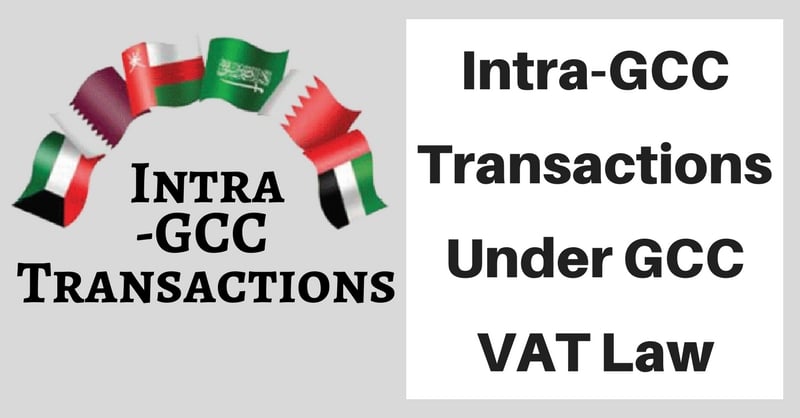
Intra-GCC transactions are the transactions (sales and purchases) between member states of GCC.
Bahrain, Kuwait, Oman, Qatar, Saudi Arabia and UAE have signed the GCC VAT Agreement. VAT is all set to be implemented in across GCC from January 2018.
Exports outside the country under the GCC VAT Law are zero-rated. But what about the transaction export transaction between the GCC States?
Taxpayers have many questions with respect to such transactions. Some of them are listed below:
- How and where will VAT be collected for Intra-GCC transactions?
- Will the taxpayer be able to claim recoverable input of VAT on purchases from member states? On what conditions recoverable input VAT be claimed?
- In what manner the supply of goods and supply of services happen between member states under GCC VAT Law?
In order to simplify and easily understand the Intra-GCC transactions we will split them into two different topics:
- Intra-GCC Transaction of Goods.
- Intra-GCC Transaction of Services.
Let us discuss each in detail.
1. Intra-GCC Transactions of Goods
Similar to the exports of goods outside GCC, the intra-GCC transactions will be zero-rated. But in this case, the buyer will pay VAT under reverse charge mechanism.
Under reverse charge mechanism, a buyer pays will VAT as if he has sold the goods to himself. The buyer can conditionally claim the input of VAT paid in the same return and thus the effect o the VAT is NIL.
If goods are transhipped from one state to another VAT is applicable.
The Input of such tax cannot be claimed in the State of origin but is claimed at the final destination of goods in the member state where the buyer is located.
If the goods were previously imported to your country for business purposes and then exported to another member state then also the VAT is applicable.
Thus, The excess of input claimed by you on such imports has to be paid back to the tax authorities.
2. Intra-GCC Transactions of Services
Same as the case of goods, if a seller sells services to his customer who is registered under VAT in another member state, the buyer will charge himself for VAT under reverse charge.
For an Intra-GCC supply of services, the VAT applicability is subject to buyer’s registration status.
When the customer of other member state is registered, VAT will be applicable on the reverse charge basis in the state of the customer.
But if the customer is a non-taxable person then VAT will be collected in the state of the supplier.
You can download other accounting templates like VAT Invoice Template, VAT Invoice Template in Arabic, and Cash Book with VAT from here.

Additionally, we also design custom accounting and invoicing software according to your requirements.
We thank our readers for liking, sharing and following us on different social media platforms.
If you have any queries please share in the comment section below. We will be more than happy to assist you.